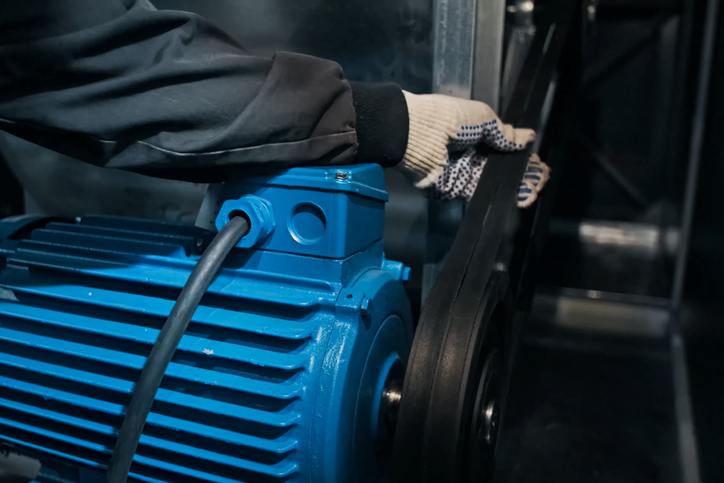If You’re in Construction College, Here’s What You Need to Know About Electrical Motor Theory
July 20, 2021
Working in the electrical industry requires knowledge of one of the fundamental components of modern construction: electric motors. From power tools to household appliances to industrial applications, electric motors are found everywhere. Essentially, an electric motor is a machine used to convert electrical energy into mechanical energy. Electricity is passed through a coil to produce the power to drive a machine.
Given their availability in today’s world, knowledge of the theory and application of electrical motors is essential for anyone hoping to pursue a career in the field of electrical construction. Skilled professionals should have a complete understanding of electrical motor theory and its application in residential, commercial, and industrial systems. If you’re considering a career as a construction and maintenance electrician, here’s a quick look at the fundamentals of electrical motor theory!
How Do Electric Motors Work?
The electric motor works according to an interaction between the electric current and the magnetic field, which generates a force to make the shaft rotate. In other words, when an electric current passes through a coil, a magnetic field is generated that causes the coil to rotate on its own axis. Most electric motors today work according to this principle of electromagnetic induction. The mechanics of a generator work in much the same way as an electric motor – however, a generator works in the opposite direction, converting mechanical energy into electrical energy.
Students in construction college learn the principles and applications of electricity to prepare them for competitive careers as electrical control assemblers, electrical technicians, and more.

Types of Electrical Motors
Electric motors can be classified according to their power source, construction, motion output, and application. Typical motors are equipped to provide sufficient mechanical power for industrial uses in pumps, fans, power tools, and disk drives. Today, the most commonly used electrical motors are AC motors and DC motors.
DC (Direct Current) motors are widely used because they come with a pre-existing power distribution system. Their speed can be adjusted through the intensity of the electric current. The ability to control the speed makes them a popular choice for home appliances, vehicles, and elevators.
AC (Alternating Current) motors are able to reverse the direction of the electric current at regular intervals. This type of motor uses magnetic forces to propel the current through the device. The current creates a rotating magnetic field that can move the rotor. With a low starting power and controlled acceleration, AC motors are suitable for instrumentation and industrial applications.
Trained electricians pursuing a career in construction will be able to distinguish the appropriate uses of different types of electrical motors.

Advantages of Electrical Motors in Construction Careers
In application, electric motors have several advantages over normal engines. When it comes to their comparative power, the horsepower rating is similar – however, the cost of electric motors is significantly lower than fossil fuel engines. These motors also don’t use fuel, nor do they require the maintenance of engine oil. In that sense, electric motors require little maintenance with a lifespan of up to 30,000 hours if maintained properly. Not to mention, electric motors can be widely used across different appliances, including machine tools, ships, paper mills, motor vehicles, as well as heating and ventilation systems. With knowledge of the fundamental workings of electric motors, students in construction are prepared for a modern and practical career path.
Are you interested in construction careers?
Contact NATS today to learn more about our program!



